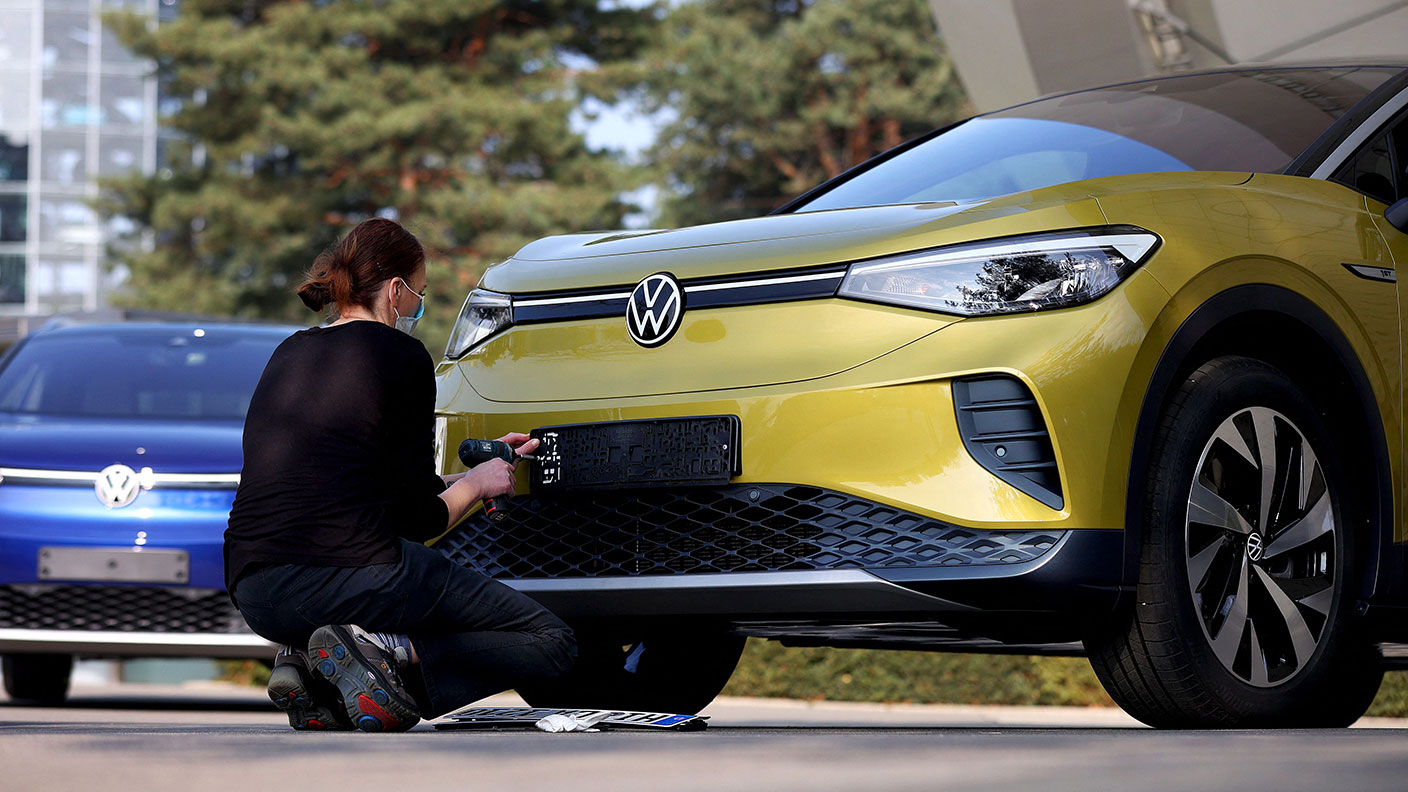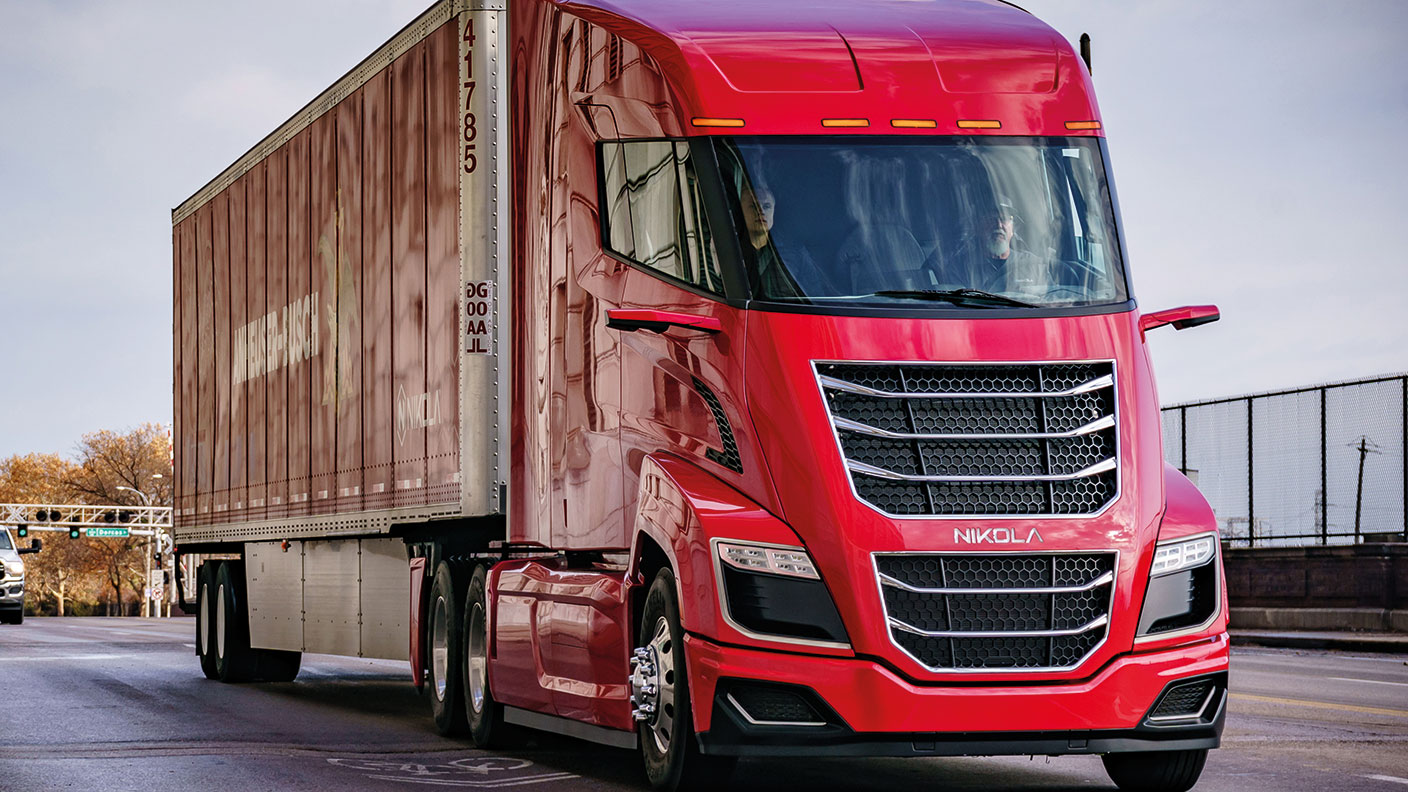Time to take Elon Musk’s advice
Tesla founder Elon Musk fears expectations in his electric car company have got out of hand.

Get the latest financial news, insights and expert analysis from our award-winning MoneyWeek team, to help you understand what really matters when it comes to your finances.
You are now subscribed
Your newsletter sign-up was successful
Want to add more newsletters?

Twice daily
MoneyWeek
Get the latest financial news, insights and expert analysis from our award-winning MoneyWeek team, to help you understand what really matters when it comes to your finances.

Four times a week
Look After My Bills
Sign up to our free money-saving newsletter, filled with the latest news and expert advice to help you find the best tips and deals for managing your bills. Start saving today!

Tesla has been on a roll. In four years the share price has soared from $40 to a peak of $383 last month. But since then it has fallen back around 20% amid fears that the stock has been overhyped. Last weekend even Tesla's founder and CEO Elon Musk warned that he felt that "our stock price is higher than we have any right to deserve" and that he wants to "tamp down those expectations".
What's getting investors so hyped up is the launch of Tesla's Model 3. Up until now the company has been a successful niche producer of luxury electric vehicles. However, this new version costs around $35,000, putting it within the range of the average family. The hope is that Tesla will bring electric cars to the masses in the way that Ford propelled car ownership itself into the mainstream.
So, is the fall in price a buying opportunity, or the sign of things to come? The company is certainly aggressively priced. It is currently making a loss, although analysts expect it to grow its revenue sevenfold by 2021, by which time it should be making money. Even if it achieves the projected sales and profit figures, however, the stock's 2021 price/earnings (p/e) ratio of roughly 18 times earnings looks high, given that most car firms trade on p/es of less than ten. The market cap of Tesla is nearly double that of Renault, even though the French carmaker has nearly ten times the revenue of the American company.
MoneyWeek
Subscribe to MoneyWeek today and get your first six magazine issues absolutely FREE

Sign up to Money Morning
Don't miss the latest investment and personal finances news, market analysis, plus money-saving tips with our free twice-daily newsletter
Don't miss the latest investment and personal finances news, market analysis, plus money-saving tips with our free twice-daily newsletter
Tesla also has several problems. Firstly, staff turnover has been high, with many senior engineers and executives leaving. Major shareholders are also reportedly unhappy about the lack of independent directors on the board. The company is still burning a huge amount of cash, around $750m a quarter. While it's been quietly trying to reinvent itself as an electric battery company, its battery "gigafactory" has yet to be completed and its solar subsidiary is also losing substantial amounts of money.
An even bigger problem for Tesla is competition. Although it may be the most high-profile electric car company, it's not the only one putting a large amount of money into this area. Indeed, all the major carmakers have increased their efforts, with General Motors' Chevrolet Bolt already proving a major hit with US consumers. Volvo recently said that it will make only electric or hybrid cars from 2019. Its competitors are also investing large sums in assisted, and even fully autonomous, driving systems, nullifying Tesla's other main competitive advantage.
If Tesla looks overpriced, then Renault looks cheap, trading at less than six times earnings, and at a discount of around 20% to its net assets. It also has a 42% stake in Nissan. In the first three months of this year the two companies sold more electric cars than Tesla (36,723 versus 24,950). While the Model 3 may change this, Nissan has said that it will sell a new version of the Leaf, currently the top-selling electric car, in the autumn. This is expected to be able to do over 200 miles per charge, making it comparable with Tesla's flagship Model S (most petrol cars can do 350+).
Renault also stands to benefit from an increase in European sales as the eurozone economy picks up. French president Emmanuel Macron's proposed liberalisation of labour laws should lower costs. Overall, while Tesla looks extremely overvalued, Renault looks like a bargain. I suggest that you short Tesla at $329.3 at £12 per $1, with a stop-loss (cover) if it gets above $411. This limits your losses to £980.40. I'd also buy Renault at €82.90, at £50 per €1, with a stop-loss of €62 (a potential downside of £1,045). Because Tesla's shares are denominated in dollars and Renault's in euros, there is additional currency risk, but this can't be helped.
How our trades are doing
It's been a good week for this column's investments. IG Group's share price has jumped to 646p, which means that the trade is now over £150 in profit. The firm has reported an 8% increase in revenue for the year to 1 June 2017, while management reckons that the regulatory crackdown on the sector, especially in terms of leverage, might not be as tough as it originally anticipated.
Virgin Money has risen to 301p, which means that it is only £51 in the red. Petrobras is also £81.25 ahead. Overall, my long bets are now £383 in profit, a substantial increase from the position a fortnight ago where they were only making a profit of £62.
Even when you take into account my short position in Ocado, which is still £162 in the red, things look pretty decent. This is not to say that there isn't any need for changes. I've held gold for nearly six months and during that time it has moved in a relatively narrow range. Fed chair Janet Yellen has recently taken a more dovish tone.
However, with the crisis in the eurozone dying down (at least for the moment) and Donald Trump moderating his position on trade, there isn't any big near-term catalyst that could push it higher. I'm therefore going to recommend that you close the position, and take profits, though of course I might revisit the trade nearer the Italian elections next year if I think that there is a good enough trading opportunity.
In the last column I promised that I would come to a decision on IG Group (the owners of spread-betting firm IG Index). In contrast to my decision to ditch gold, I'm going to stick with my position on IG. The revenue growth suggests that the company's business model should be able to withstand the impact of any increased regulation. IG's move into more conventional broking is also a great way to leverage the brand name to get more money from its existing customer base.
Get the latest financial news, insights and expert analysis from our award-winning MoneyWeek team, to help you understand what really matters when it comes to your finances.

-
 Can mining stocks deliver golden gains?
Can mining stocks deliver golden gains?With gold and silver prices having outperformed the stock markets last year, mining stocks can be an effective, if volatile, means of gaining exposure
-
 8 ways the ‘sandwich generation’ can protect wealth
8 ways the ‘sandwich generation’ can protect wealthPeople squeezed between caring for ageing parents and adult children or younger grandchildren – known as the ‘sandwich generation’ – are at risk of neglecting their own financial planning. Here’s how to protect yourself and your loved ones’ wealth.
-
 Why you should short Tesla, the electric-car maker running on empty
Why you should short Tesla, the electric-car maker running on emptyTips Electric-vehicle maker Tesla is absurdly pricey and faces stiff competition from rivals, says Matthew Partridge. Here’s how to play it.
-
 Short electric-truck maker Nikola, the Tesla wannabe
Short electric-truck maker Nikola, the Tesla wannabeTips Nikola, the electric-lorry maker, has yet to produce any trucks – and the share price looks ripe for a fall.
-
 Tesla's share price is overdue a crash
Tesla's share price is overdue a crashFeatures Electric carmaker Tesla’s shares have defied gravity for too long, says Matthew Partridge.